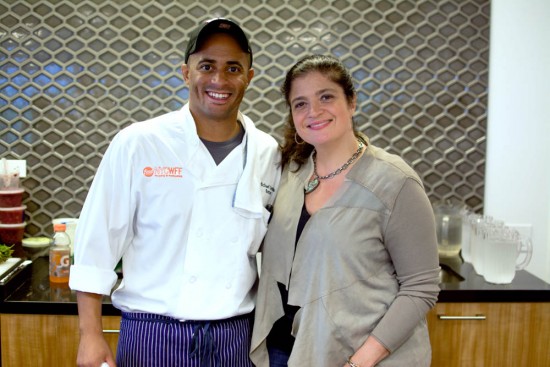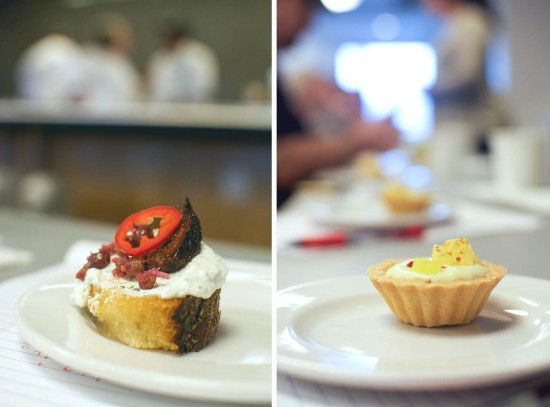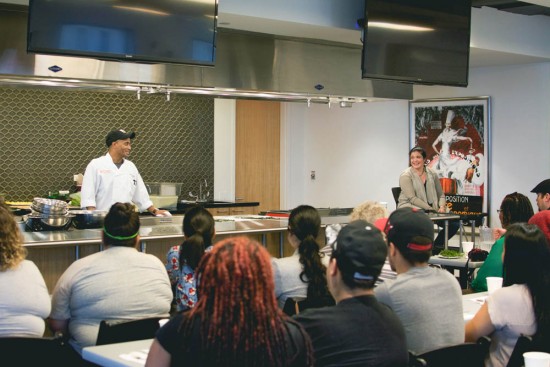“You’re going to get your close-up if you want it,” explains renowned chef and Food Network personality Alex Guarnaschelli. “But when it happens, what will you know how to do, and what will you have to say?” This week, Chef Alex spoke to a packed room of ICE students and graduates as she shared insights from her storied culinary career.
Alongside her in the kitchen was ICE Culinary Arts alum Michael Jenkins, who has worked under Alex at Butter Restaurant for the past 10 years. Michael began as an extern and currently heads the restaurant as chef de cuisine.

“[Before working in the kitchen with Alex] I had never had the experience of trying hard and not succeeding,” says Michael, “but food is very good at humbling you.” Chef Alex echoed that sentiment when describing her career, noting that, as a young cook, she had a Band-Aid on eight out of 10 fingers at all times. She joked, “Cooking is a giant booby trap. You’re going to make a mistake, so just try to make it a different mistake than the last time—at least that way there’s a sense of progress.”
Clearly, Alex has progressed since her days as a young cook. Before stepping onto a set at Food Network, she had already logged 17 years as a culinary professional—including a stint as a chef instructor in ICE’s Culinary Arts program. “When I first appeared on food television, I only had to adapt to the lights and the cameras. Cooking was second nature to me by then, but I’ve seen many chefs step into the spotlight before they were ready.”

The theme of navigating the early stages of one’s career persisted throughout Alex’s talk, as she fielded student questions and explained her evolution as a chef. “At some point after I had taken over as executive chef at Butter, the question became ‘Why?’—why this ingredient in this dish? I had spent years working with the best ingredients at Guy Savoy and Daniel, and yet I wasn’t connected to them because I hadn’t met the farmers who produced them or sourced the ingredients myself.”
Today, Alex’s ingredient-driven approach—and the way she talks about ingredients—has become her claim to fame. Her advice to novice chefs is to approach balancing flavors like mixing paint: “If you start with black, you have to keep pouring white paint into it to achieve gray, and you end up with six hotel pans of paint. Instead, start with your white—your mild ingredients—and add a dab of the stronger flavors.”

Alex also imparted industry wisdom that extended beyond cooking. She spoke of self-knowledge and how her stormy temperament led her away from a desk job and into the kitchen. She also noted—despite her and other chefs’ reputations for being tough leaders—that the foundation of any successful kitchen is the social aspect: “Spending my time building relationships and loyalty is the thing I’m proudest of in my life.” As far as what keeps this famous chef going, it would appear to be her endless drive to do better. “I’ve discovered that, for me, an eternal state of semi-dissatisfaction is a pretty good place to live.”
Click here for a schedule of upcoming lectures and demonstrations with industry leaders at ICE.



